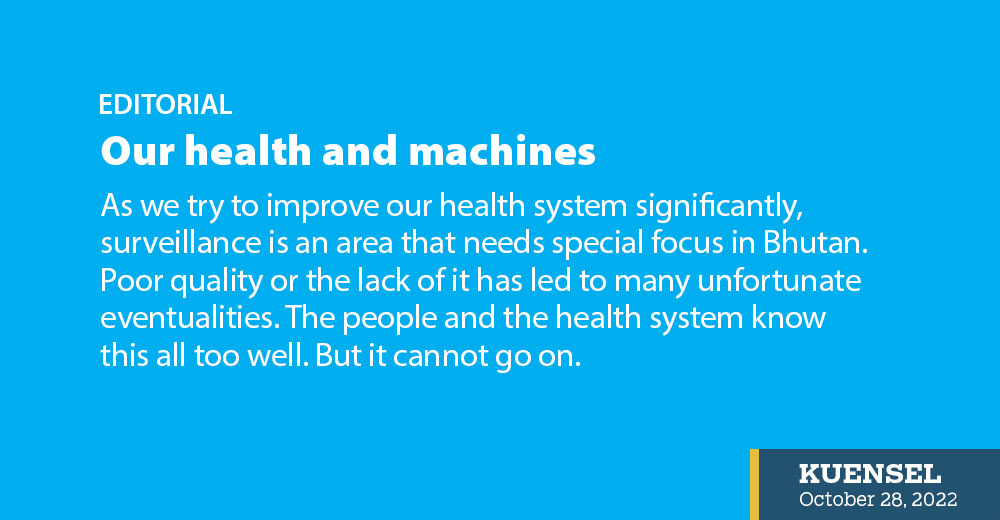As we try to improve our health system significantly, surveillance is an area that needs special focus in Bhutan. Poor quality or the lack of it has led to many unfortunate eventualities. The people and the health system know this all too well. But it cannot go on.
Wrong and late detection cost human lives. The improvement of our health system should eliminate or narrow down this gap. We are the beneficiaries of free healthcare, thanks to the vision of our extraordinary monarchs. It is upon the Ministry of Health to live up to that vision.
Non-communicable diseases such as heart disease, cancer, chronic respiratory diseases, and diabetes are the biggest killer in the country today. That’s why mobile medical equipment and a medical van provided by the government of Japan under grant assistance for grassroots projects (GGP) has the potential to make a huge difference.
Non-communicable diseases (NCDs) are a serious and growing problem in Bhutan. It is perhaps the biggest killer in the country. The endorsement of the implementation roadmap for the prevention and control of NCDs in the region 2022–2030 by the member countries of the 75th session of the regional committee meeting of WHO South-East Asia Region (SEAR) in Paro was a significant milestone.
The roadmap provides strategic directions to speed up the national NCD response through primary healthcare and universal health coverage to improve access, coverage and quality of NCD prevention and control interventions.
Doctors tell us not to overlook the dangers of NCDs. Human suffering and referral costs are too high for a country like Bhutan. However, the fact is that most of these diseases can be prevented. We may now have facilities such as mobile medical equipment and a medical van but do we have programmes to take the facilities to those places that are in need of urgent services?
There are only two ways a machine dies—overuse or underuse. In our case, the latter could be true, which is unfortunate. Our challenge today is not just about the lack of expertise and equipment required for early detection of cases that can be easily treated with simple health monitoring. It is about not using the available resources properly.
It is, therefore, our hope that whatever we receive as support from our friends should be put to good use. Otherwise, the scourges such as heart disease, cancer, chronic respiratory diseases, and diabetes will continue to rise even with state-of-the-art medical machines in our hospitals.


